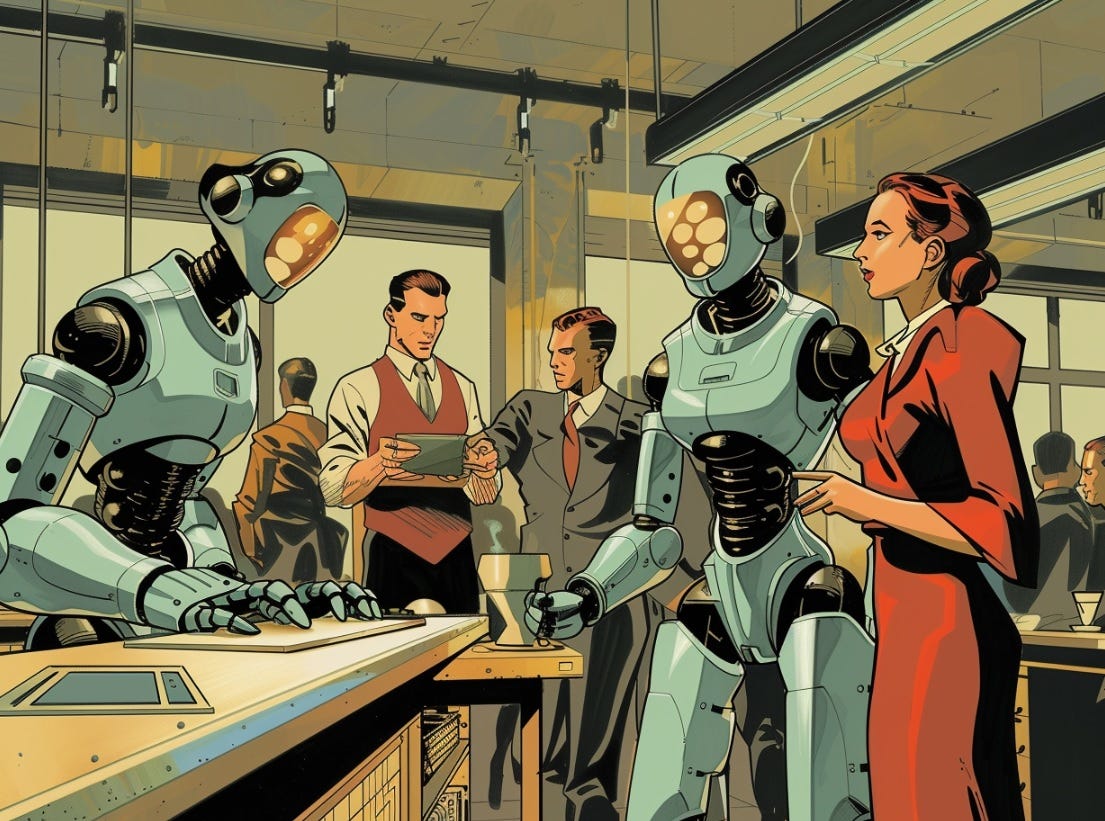🤖👷♂️ Beyond disruption: AI, expertise, and the future of middle-class workers
Viewing tech progress mainly as job automation that replaces humans is misguided and ahistorical
Quote of the Issue
“The capitalist achievement does not typically consist in providing more silk stockings for queens but in bringing them within the reach of factory girls in return for steadily decreasing amounts of effort.” - Joseph Schumpeter, Capitalism, Socialism and Democracy
The Conservative Futurist: How To Create the Sci-Fi World We Were Promised
“With groundbreaking ideas and sharp analysis, Pethokoukis provides a detailed roadmap to a fantastic future filled with incredible progress and prosperity that is both optimistic and realistic.”
The Essay
🤖👷♂️ Beyond disruption: AI, expertise, and the future of middle-class workers
Advances in artificial intelligence — including the promise of generative AI — are having an impact on jobs, at least in the tech sector where companies are reorganizing their workforces and investment spending in a pivot toward the technology. This from the New York Times:
Tech’s biggest companies are rushing to hire engineers to build A.I. systems. Last year, there were 180,000 job postings in the United States related to A.I., including roles in software development, semiconductor engineering and cloud computing, according to CompTIA. The number of A.I. job openings has expanded this year. Those employees are helping Microsoft, Google, Amazon and Meta improve chatbots and build other A.I. systems. Apple is hiring for A.I. engineers, as the company develops its own A.I. offering to release later this year. … The companies are spending billions of dollars on the expensive chips and supercomputers necessary to train and build A.I. systems. By the end of the year, Meta expects to have purchased 350,000 of specialized chips from the chip maker Nvidia, which cost an estimated $30,000 each.The push into generative A.I. has coincided with cuts elsewhere. Google’s layoffs reduced the number of people working on augmented reality technology. Meta, which laid off nearly 20,000 people last year, has been cutting some of its program managers, who oversee different projects and are responsible for keeping teams on schedule.
Short version: Tech progress is generating creative destruction. Some jobs are cut, others are created, the latter both at the companies building AI systems and those selling the equipment to build those systems. And if machine learning broadly and GenAI specifically are so important as to be considered powerful general-purpose technologies, this will be the story across the American economy. Dynamism is action.
The big question, of course: How will all these changes net out? Are we on a path toward widespread and persistent technological unemployment? Should we expect history to repeat itself — jobs are lost, jobs are gained even as America remains a high-employment economy — or is this time different? Fire up those plans for a universal basic income?
Keep reading with a 7-day free trial
Subscribe to Faster, Please! to keep reading this post and get 7 days of free access to the full post archives.



